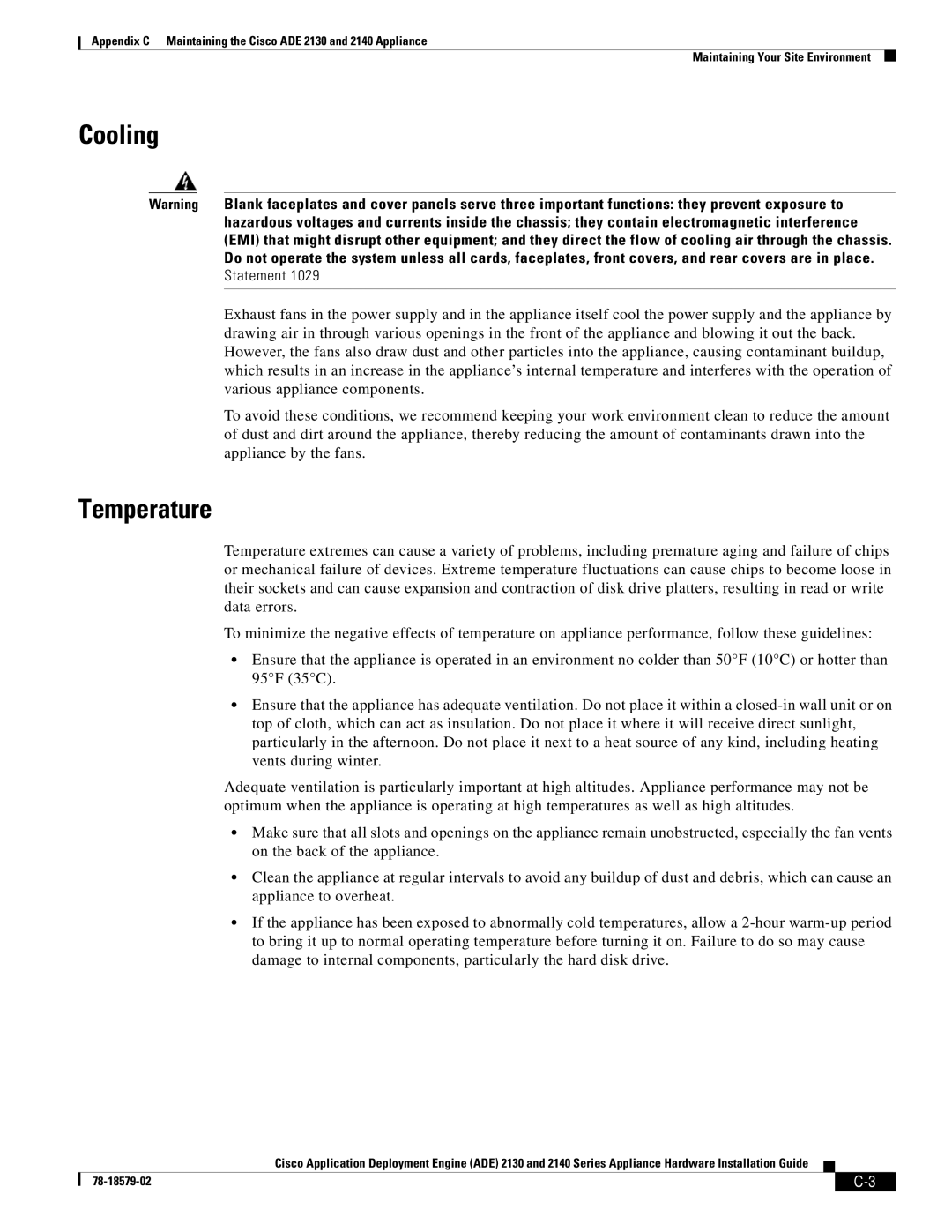
Appendix C Maintaining the Cisco ADE 2130 and 2140 Appliance
Maintaining Your Site Environment
Cooling
Warning Blank faceplates and cover panels serve three important functions: they prevent exposure to hazardous voltages and currents inside the chassis; they contain electromagnetic interference (EMI) that might disrupt other equipment; and they direct the flow of cooling air through the chassis. Do not operate the system unless all cards, faceplates, front covers, and rear covers are in place. Statement 1029
Exhaust fans in the power supply and in the appliance itself cool the power supply and the appliance by drawing air in through various openings in the front of the appliance and blowing it out the back. However, the fans also draw dust and other particles into the appliance, causing contaminant buildup, which results in an increase in the appliance’s internal temperature and interferes with the operation of various appliance components.
To avoid these conditions, we recommend keeping your work environment clean to reduce the amount of dust and dirt around the appliance, thereby reducing the amount of contaminants drawn into the appliance by the fans.
Temperature
Temperature extremes can cause a variety of problems, including premature aging and failure of chips or mechanical failure of devices. Extreme temperature fluctuations can cause chips to become loose in their sockets and can cause expansion and contraction of disk drive platters, resulting in read or write data errors.
To minimize the negative effects of temperature on appliance performance, follow these guidelines:
•Ensure that the appliance is operated in an environment no colder than 50°F (10°C) or hotter than 95°F (35°C).
•Ensure that the appliance has adequate ventilation. Do not place it within a
Adequate ventilation is particularly important at high altitudes. Appliance performance may not be optimum when the appliance is operating at high temperatures as well as high altitudes.
•Make sure that all slots and openings on the appliance remain unobstructed, especially the fan vents on the back of the appliance.
•Clean the appliance at regular intervals to avoid any buildup of dust and debris, which can cause an appliance to overheat.
•If the appliance has been exposed to abnormally cold temperatures, allow a
Cisco Application Deployment Engine (ADE) 2130 and 2140 Series Appliance Hardware Installation Guide
|
| |
|
